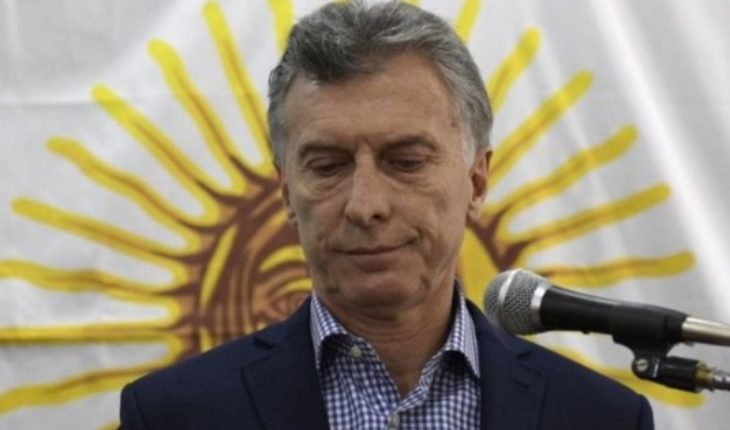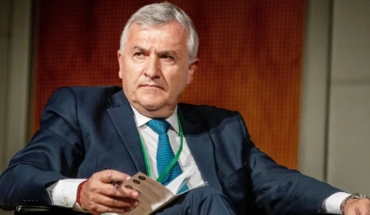of the vultures of the debt and the books cooked to the fiscal time bombs, the Argentine President Mauricio Macri inherited enough disaster. In his three years in office, it has handled most of these challenges remarkably well, drawing cheers from investors and their compatriots. Here was a Manager decisive, favourable to the companies, who spoke of transparency initiatives of free market to end what could have been “more populist experiment” in the world, in the words of Oxford Economics, Guillermo Tolosa analyst.
The highly anticipated return of the Argentine, now seems to be in danger. This week, with the hit weight becoming faint, the agitated public deficit and discontent sizzling in the streets, Macri seemed more desperate than decisive. In an appearance not scheduled on Wednesday, he traveled to YouTube to pass a plan for a large deposit of the loan of 50,000 million dollars in the country with the International Monetary Fund, which is already the largest rescue registered Fund.
The brief announcement, in Spanish, was apparently designed to calm jitters in the country by the sorry state of the nation’s economy and “mistrust” of the markets about the ability of Argentina to pay its debts. What happened was the opposite.
Weight dropped another 20 percent just this week. To curb losses, the Government boldly rose her interest rate of reference to a whopping 60 percent, without any result. Late Thursday, the Argentine peso was the currency of worst performance this year, beating the beleaguered lira of Turkey.
Bad communications did not help. Why Macri made the statement instead of the economists of the Government – who could have unpacked the financial complexities and have saved the public confusion of the leader of the nation – was a mystery. It also was the decision to announce the request ahead of the IMF, which was apparently taken by surprise.
Argentina is not Turkey. Macri has fulfilled his promise of opening up the market and return to the Andean country to the thanks of the financial community. He has diligently followed the script of the IMF. And no one should doubt his Government tools to dig up the Decade of Fernández Cristina de Kirchner wasteful economic skeletons. Consider that while only around 8 million Argentines they paid taxes, some 21 million received cash transfers and subsidies, according to Oxford Economics.
No doubt, part of the country’s problems is due to larger events, such as the spread of Turkish economic defeat and the worst drought in Argentina in three decades. But Argentina also is a victim of what the Minister of the Interior, Rogelio Frigerio called “unforced errors”.
“This is a country that is very difficult to govern,” said Frigerio to legislators and business leaders in Buenos Aires this week. However, bad bets, lost signals and fiscal drag have made that worsen the plight of Argentina and put to test the celebrated rookie Macri management. Despite repeated breaches of financial analysts, Macri reduced it rather than cut public spending. The modest savings were offset by aggressive lending, which inflated the total deficit of the public sector in a dangerous 9.3 per cent of gross domestic product, Oxford Economics wrote in a note to customer in April.
These policies go-go could have made sense when international financial markets were in the red. “Why stop of borrow if the world is willing to finance its deficit?”, said Tolosa. But also emerging markets sink, with rises in rates and the spread of the Federal Reserve of USA. UU. Since the Turkish economy, the party is over.
“It is important to say that Macri Administration did not create the problem. This is the cost of the populist experiment that he inherited “, said Alberto Ramos of Goldman Sachs.” But the price of tax gradualism is that you depend on the kindness of strangers. The feelings of the market change and that leaves you vulnerable, and then your only option is to stay under duress ‘. ”
The worst thing will be coercion is a key question. It is almost certain that Argentina will route to the recession this year, and perhaps a mere 1.5 per cent growth in 2019. That is practically a guarantee of more severe austerity as Argentines prepare to vote for a new President in October of 2019.
“It is likely that the elections become a referendum on Macri,” said Monica de Bolle, academic Director of Latin American studies and specialization in emerging markets of the Johns Hopkins School of advanced international studies. “Probably you will see frustration driving the vote, which could revive the crazy and populist policy”.
If there is a ray of light, it is that most ardent populists in Argentina are still in disorder, starting with the head of the Peronist poster Fernandez, who is responding to multiple charges of corruption. But that is small consolation for Macri, that now has few options rather than offer the austerity that avoided and risk the reaction of voters.
* By Mac Margolis for Bloomberg.
translated from Spanish: Macri: what the party that is playing is about?
September 3, 2018 |




